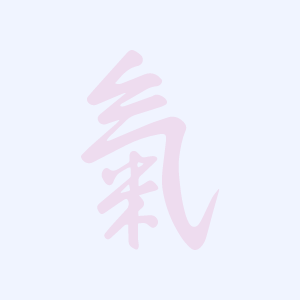

In Stock
Brand: TCM Zone
English name: Gypsum
Chinese name: Shi Gao Granules
Unit Size: 100g Bottle
Serving Size: As directed
Potency: 5:1 extract granules
Taste: Sweet, Acrid
Properties: Very cold; excels at cooling Lung and Stomach fire, while also dispersing to vent to the exterior and release the muscle layer. -Bensky
Contraindications: Contraindicated in cases of cold from deficiency of the Spleen and Stomach, or fever from yin deficiency.
Chinese Symptomology: High fever without chills, irritability, intense thirst, profuse sweating;Cough and wheezing with fever and thick, viscous sputum;Eczema, burns, and ulcerated sores: usually applied topically in powdered form after being calcined and mixed with other herbs.Bensky
Actions: Clears heat and drains fire;Clears heat from excess from the Lungs;
Pattern: Excess in qi level of the four levels of disease, or the yang brightness channel stage of the six stages of disease;Heat from excess in the Lungs
Tongue: Red tongue with a yellow coating
Pulse: Flooding, big pulse
Branch: Lung, Stomach
Ingredients
Shi Gao - Gypsum Fibrosum
Acrid, sweet, and very cold, Gypsum fibrosum (shi gao) enters the Lung and Stomach channels. It is very cooling and dispersing; within its ability to drain fire is a tendency to clear and release. In the exterior, it releases heat from the muscle layer, and in the interior, it clears fire and heat from excess from the qi level of the Lungs and Stomach. Reducing heat is crucial for the preservation of fluids, and it is no accident that intense thirst is a signal for the use of Gypsum fibrosum (shi gao), as is the high fever with absence of chills and the large, strong pulse. Other conditions for which this mineral is an excellent choice include Lung heat leading to severe cough and wheezing, and Stomach fire causing headache, toothache, bleeding gums, or tooth abscess. If used with herbs that cool heat in the blood, Gypsum fibrosum (shi gao) can also treat symptoms of heat in the qi and blood such as rashes, delirium, and muddled consciousness. Commentary of the Divine Husbandman's Classic of Materia Medica elaborates: The acrid flavor of Gypsum fibrosum (shi gao) can release the muscle layer, its sweetness can moderate heat, its great coldness side by side with these sweet and acrid properties mean that it can expel intense heat... . This herb can disperse pathogenic heat from the yang brightness and direct phlegm-heat downward in the greater yang; thus it is a major herb in each case. Concern about the powerful clinical effects of Gypsum fibrosum (shi gao) has been shared by novice herbal physicians throughout the ages, but more experienced voices counsel that a precise knowledge of one's tools followed by resolute application will achieve better results than a faltering attempt with insufficient but 'safe' doses, which often achieve nothing at all. Essays on Medicine Esteeming the Chinese and Respecting the Western makes this point: There is definitely not reason to think that unprepared Gypsum fibrosum (shi gao), when used to treat externally-contracted disorders with heat from excess, will harm people. When used courageously, there is also no reason that it will not reduce heat. The author of that book, Zhang Xi-Chun, argues that Gypsum fibrosum (shi gao) actually does not have the extremely cold properties of Coptidis Rhizoma (huang lian), Phellodendri Cortex (huang bai), or Gentianae Radix (long dan cao), yet its ablilty to reduce heat surpasses these herbs. He bases his argument on a statement in the Divine Husbandman's Classic of the Materia Medica that Gypsum fibrosum (shi gao) can be used for postpartum women with externally-contracted heat, while the other bitter, cold herbs noted here are contraindicated. "Gypsum fibrosum (shi gao) alone is not forbidden" in that context, he points out, and therefore cannot be extremely cold. Zhang notes that the cooling action of these bitter, cold herbs derives from cold overcoming heat, whereas Gypsum fibrosum (shi gao) reduces heat by driving it out of the body. Zhang also suggests that a decoction containing Gypsum fibrosum (shi gao) be consumed quite slowly: "You want its therapeutic power to remain in the upper and middle burners, and [not let] the coldness encroach upon the lower [burner], causing loose stools or diarrhea." Regarding the question of whether Gypsum fibrosum (shi gao) should be decocted prior the other herbs in a decoction, some in China have found that there is an inverse relationship between the solubility of its major constituents and the decocting temperature. There is some evidence that only slight simmering at 60 degrees centigrade gives the best result. This is in line with the methods described in Discussion of Cold Damage, where none of the seven formulas containing Gypsum fibrosum (shi gao) specify that it be added before the other herbs. --excerpted from Bensky: Chinese Herbal Medicine Materia Medica, 3rd edition.
Note: TCMZone products are intended to be used by those who are under the care and supervision of a LICENSED health care professional.